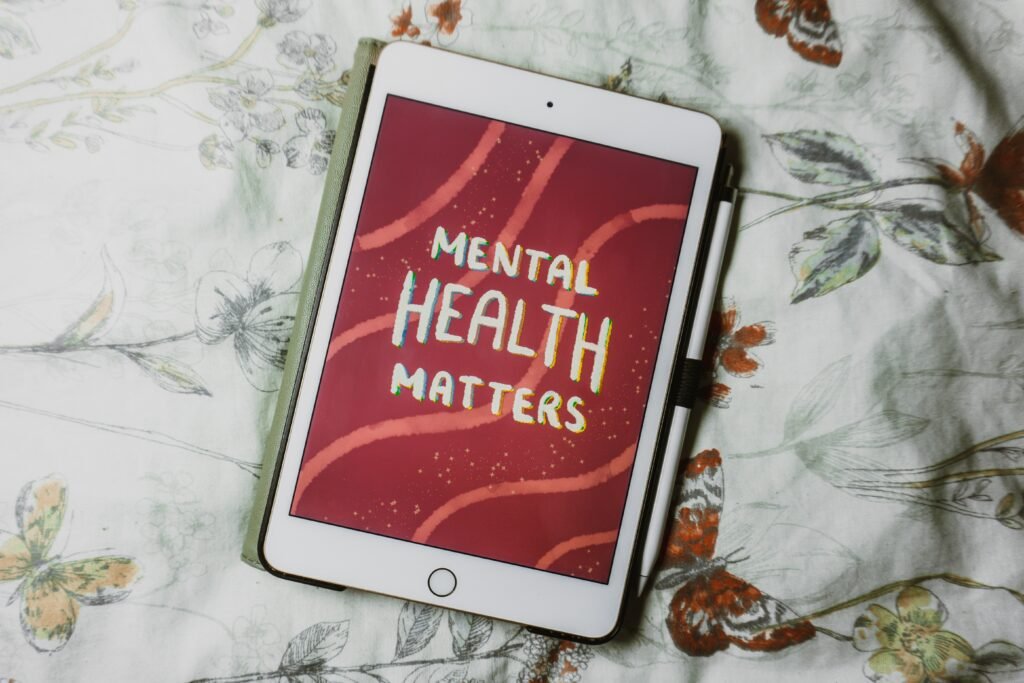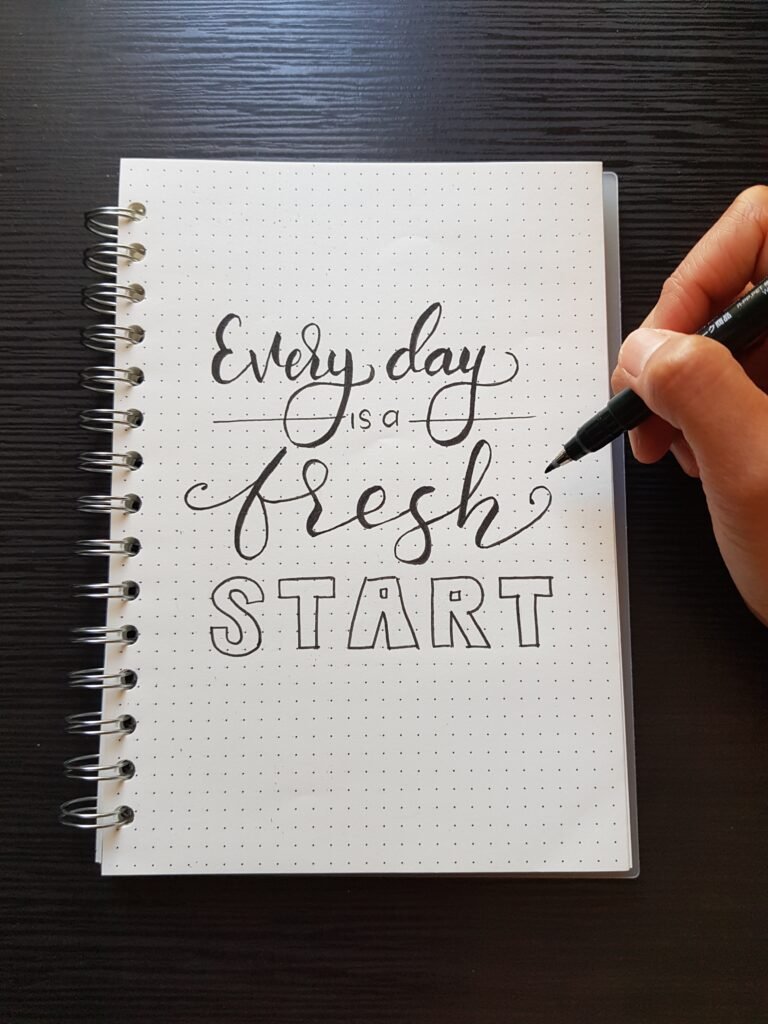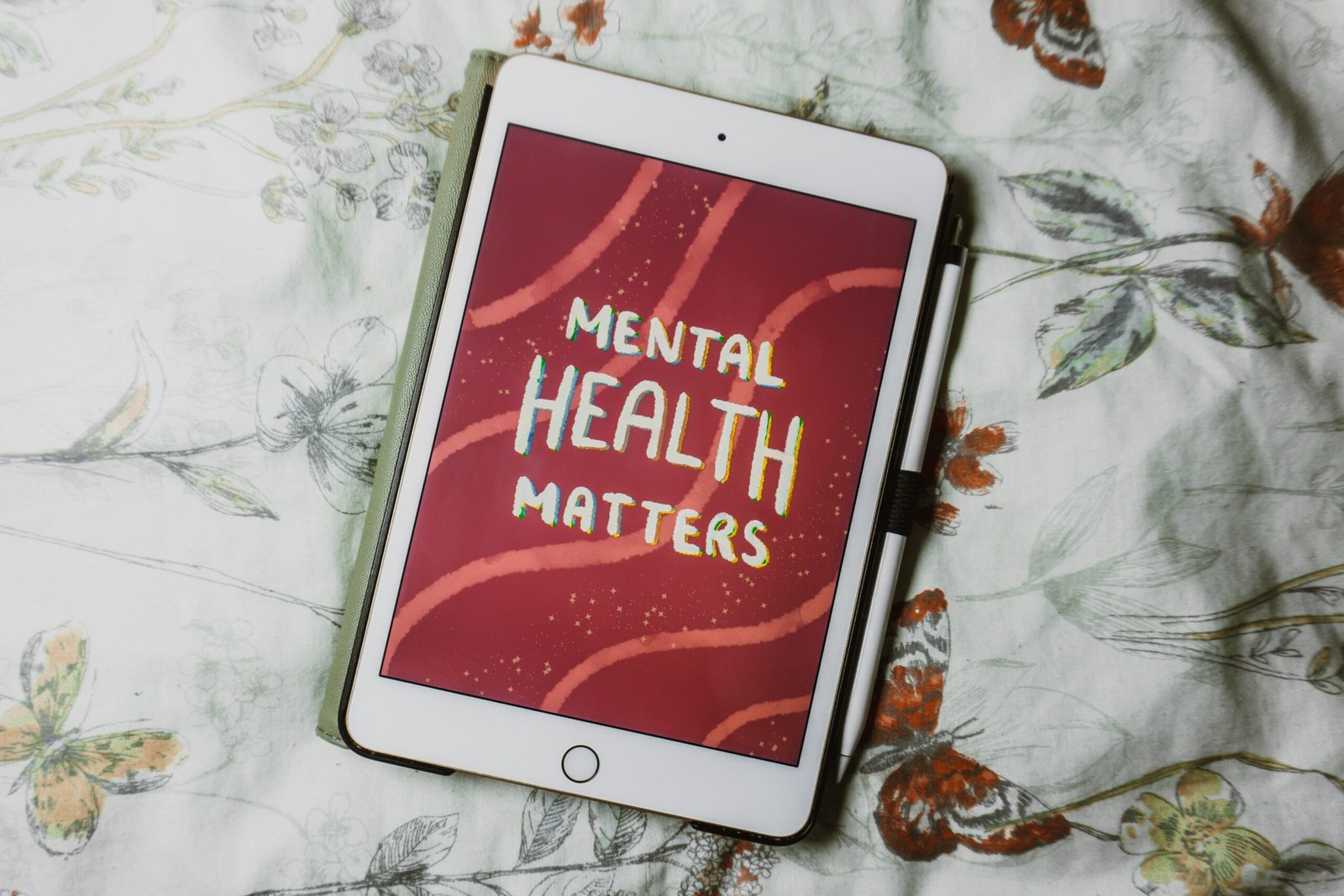If you’ve ever found yourself wondering how to expand your knowledge of various mental health conditions, you’re not alone. With the growing awareness of mental health issues, many individuals are seeking ways to educate themselves and gain a better understanding of these conditions. By taking the initiative to learn, you can not only enhance your own understanding but also advocate for those who may be struggling. So, if you’re ready to embark on a journey of learning and empathy, keep reading as we explore some simple yet effective ways to educate yourself about different mental health conditions.

1. Researching Mental Health Conditions
1.1. Understanding the Basics
When it comes to educating yourself about mental health conditions, it’s important to start with the basics. Begin by familiarizing yourself with the fundamental concepts and terms related to mental health. This will help you establish a solid foundation of knowledge that you can build upon as you delve deeper into specific conditions.
To understand the basics, consider exploring reputable online resources that provide comprehensive information on mental health. Websites such as Medical News Today, Mayo Clinic, and the National Institute of Mental Health are excellent starting points. These platforms often offer articles, guides, and infographics that present information in a clear and concise manner, making it easier for you to grasp the fundamental aspects of mental health.
1.2. Exploring Specific Mental Health Conditions
Once you have a good understanding of the basics, you can begin exploring specific mental health conditions. Mental health encompasses a wide range of disorders, such as anxiety, depression, bipolar disorder, schizophrenia, and many more. Each condition has its unique symptoms, causes, and treatment approaches.
To educate yourself about specific mental health conditions, consider reading books and publications that specialize in these topics. Books written by mental health professionals and individuals with personal experiences can provide invaluable insights and perspectives. Additionally, magazines and journals focused on mental health often publish articles that discuss various conditions in detail.
1.3. Identifying Common Symptoms
To gain a deeper understanding of mental health conditions, it is crucial to familiarize yourself with the common symptoms associated with each disorder. Symptoms can vary widely depending on the condition, and recognizing them is essential for early detection and seeking appropriate help.
Reputable online resources and mental health organizations provide detailed lists of symptoms for different mental health conditions. Take the time to familiarize yourself with these symptoms and understand their potential impact on an individual’s life. It is important to remember that symptoms can manifest differently in each person, so developing a comprehensive understanding of the wide range of possible symptoms is crucial.
2. Accessing Reliable Resources
2.1. Utilizing Online Websites and Blogs
In our digital age, online websites and blogs have become valuable resources for accessing information about mental health conditions. Numerous reputable websites and blogs are dedicated to providing accurate and up-to-date information on various mental health topics. These platforms often cover a wide range of conditions, and their content is written by mental health professionals, researchers, and individuals with lived experiences.
When utilizing online resources, it is essential to ensure that the platforms you rely on are trustworthy and reputable. Look for websites and blogs that are associated with recognized mental health organizations or those authored by licensed mental health professionals. This will help ensure that the information you access is reliable and evidence-based, enabling you to receive accurate and current knowledge about mental health conditions.
2.2. Reading Books and Publications
Books and publications are timeless sources of information that can provide in-depth knowledge about mental health conditions. Many authors, including mental health professionals and individuals with lived experiences, have written insightful books that aim to educate and raise awareness about various mental health challenges.
When selecting books to educate yourself about mental health conditions, consider reading those written by reputable authors in the field. Look for books that are widely recommended by mental health organizations, clinicians, and professionals. These books often offer a balanced perspective and cover a wide range of conditions, ensuring that you gain a comprehensive understanding of different mental health challenges.
2.3. Seeking Information from Reputable Organizations
Reputable mental health organizations play a vital role in providing accurate and reliable information about mental health conditions. These organizations are often at the forefront of research, advocacy, and education in the field of mental health. They offer a wealth of resources, including fact sheets, brochures, and online materials, all of which can help you educate yourself about different mental health conditions.
Organizations such as the National Alliance on Mental Illness (NAMI), the American Psychiatric Association (APA), and the World Health Organization (WHO) are recognized authorities in the field of mental health. Their websites and publications are excellent sources of information about various conditions. By seeking information from these reputable organizations, you can ensure that you access trustworthy and evidence-based resources.
3. Learning from Mental Health Professionals
3.1. Attending Workshops and Trainings
One of the most effective ways to educate yourself about mental health conditions is by attending workshops and trainings conducted by mental health professionals. These sessions provide a unique opportunity to learn directly from experienced experts in the field.
Look for workshops and trainings offered by mental health organizations, local clinics, or educational institutions. These events cover a wide range of topics, including specific mental health conditions, therapeutic techniques, and strategies for promoting mental well-being. By actively participating in these sessions, you can gain insights, ask questions, and interact with professionals who possess valuable knowledge and expertise.
3.2. Consulting Therapists or Counselors
Consulting with therapists or counselors can be immensely valuable when seeking to educate yourself about mental health conditions. These professionals have specialized training and experience in diagnosing and treating mental health challenges. As such, they can provide valuable insights and guidance based on their clinical expertise.
Schedule an appointment with a mental health professional to discuss your desire to learn more about different mental health conditions. They can provide personalized recommendations, suggest relevant resources, and answer any questions you may have. Engaging in discussions with these professionals can deepen your understanding of mental health and empower you to make informed decisions regarding your own well-being or that of others.
3.3. Exploring Support Groups
Support groups offer a unique learning environment where individuals with similar experiences can connect, share, and learn from one another. Many support groups focus on specific mental health conditions, providing a safe space for individuals to discuss their challenges, victories, and strategies for coping.
Consider joining a support group related to the mental health condition you wish to educate yourself about. These groups often meet in person or virtually, allowing you to interact with individuals who have firsthand experiences with the condition. By actively participating in support group discussions, you can gain valuable insights, learn from others’ journeys, and broaden your understanding of the impact that different mental health conditions can have on individuals’ lives.
4. Engaging in Online Courses and Webinars
4.1. Enrolling in e-Learning Platforms
Online courses and e-learning platforms offer a convenient and flexible way to deepen your knowledge about mental health conditions. Many reputable institutions and organizations offer specialized courses that cover various aspects of mental health, including specific conditions, treatment approaches, and the impact of mental health on different populations.
Explore popular e-learning platforms that offer mental health-related courses, such as Coursera, edX, and Udemy. These platforms often provide courses taught by experts in the field, allowing you to learn at your own pace and according to your schedule. By enrolling in these courses, you can gain comprehensive knowledge about mental health conditions while benefiting from educational materials, assignments, and interactive activities.
4.2. Attending Webinars and Virtual Conferences
Webinars and virtual conferences have gained significant popularity in recent years, offering a convenient way to learn and engage with experts in the field of mental health. Many mental health organizations, universities, and professional associations host webinars and conferences focusing on various aspects of mental health conditions.
Stay updated on upcoming webinars and conferences by following mental health organizations and professionals on social media, subscribing to their newsletters, or regularly visiting their websites. These virtual events typically feature keynote speakers, panel discussions, and workshops led by renowned experts. By attending these webinars and conferences, you can gain valuable insights, access the latest research, and connect with a community of individuals passionate about mental health.

5. Expanding Knowledge through Documentaries and Films
5.1. Watching Documentary Films
Documentary films offer a powerful medium for raising awareness and educating audiences about mental health conditions. Many documentaries delve into personal stories, scientific research, and societal issues surrounding mental health, shedding light on the challenges faced by individuals with different conditions.
Search for reputable documentaries that focus on the mental health condition you wish to learn more about. Platforms such as Netflix, Amazon Prime Video, and documentary-specific websites often feature a wide selection of films in this genre. By watching these documentaries, you can gain a deeper understanding of the realities and complexities associated with different mental health conditions.
5.2. Exploring Mental Health-related TV Shows and Movies
In addition to documentaries, fictional TV shows and movies also provide valuable insights into mental health conditions. Many productions strive to portray realistic depictions of individuals living with mental health challenges, allowing viewers to connect with the characters and gain a greater understanding of their experiences.
Look for acclaimed TV shows and movies that tackle mental health topics sensitively and accurately. Popular series like “This Is Us,” “BoJack Horseman,” and “Euphoria” explore mental health themes with depth and compassion. By engaging with these fictional narratives, you can develop empathy, expand your knowledge, and appreciate the complexities of mental health conditions from different perspectives.
6. Participating in Mental Health Awareness Campaigns
6.1. Joining Walks or Runs for Mental Health
Participating in mental health awareness campaigns, such as walks or runs, allows you to actively contribute to the movement while raising awareness about different mental health conditions. These events bring communities together, promote dialogue, and encourage individuals to support one another in their mental health journeys.
Search for local or national mental health organizations that organize walks or runs dedicated to raising awareness about specific conditions. By joining these events, you can engage in physical activity while supporting a worthy cause. These events often provide opportunities to connect with individuals who have personal experiences with mental health conditions, fostering a sense of community and understanding.
6.2. Supporting Mental Health Advocacy Groups
Mental health advocacy groups play a crucial role in promoting understanding, reducing stigma, and advocating for policy changes related to mental health. Supporting these organizations through donations, volunteering, or spreading their message can contribute to creating a more informed and compassionate society.
Research and identify mental health advocacy groups or organizations that align with your values and objectives. They may focus on specific mental health conditions or work towards improving mental health on a broader scale. By supporting their initiatives, you can help raise awareness, facilitate positive change, and contribute to the ongoing conversation surrounding mental health.

7. Engaging in Peer-to-Peer Exchanges
7.1. Sharing Experiences with Others
Engaging in peer-to-peer exchanges allows you to learn from individuals who have personal experiences with different mental health conditions. By sharing stories and insights, you can develop a deeper understanding of the challenges faced by individuals living with these conditions and gain valuable perspectives that extend beyond academic or professional knowledge.
Look for opportunities to connect with individuals who are open to sharing their mental health journeys. This can be through support groups, online communities, or through friends and acquaintances who have personal experiences with mental health conditions. Engaging in meaningful conversations can help bridge gaps in knowledge and foster empathy, ultimately enhancing your understanding of different mental health conditions.
7.2. Participating in Online Forums and Discussion Boards
Online forums and discussion boards provide platforms for individuals to connect, seek support, and share knowledge about mental health conditions. These online communities often bring together individuals with a diverse range of experiences, allowing for valuable exchanges of information and insights.
Search for reputable online forums or discussion boards dedicated to mental health topics. Platforms such as Reddit and dedicated mental health forums offer spaces where individuals can ask questions, share their experiences, and participate in discussions. By actively engaging in these communities, you can learn from others, seek guidance, and gain perspectives that can enhance your understanding of different mental health conditions.
8. Staying Informed About Current Research
8.1. Reading Scientific Journals and Studies
Staying informed about current research is crucial for continually expanding your knowledge about mental health conditions. Scientific journals and studies provide a wealth of information on the latest advancements in understanding mental health, treatment approaches, and emerging interventions.
Explore reputable scientific journals in the field of mental health, such as the Journal of Abnormal Psychology, the Journal of Consulting and Clinical Psychology, and the Journal of Clinical Psychiatry. These publications often feature research articles written by experts in the field, offering insights into cutting-edge studies and findings. By reading these journals, you can stay updated on the evolving landscape of mental health research.
8.2. Following Mental Health Researchers and Experts
Following mental health researchers and experts on various social media platforms can provide you with a steady stream of curated information, insights, and updates related to mental health conditions. Many professionals actively engage with their audience, sharing research findings, articles, and resources that can help educate and inform individuals about different mental health challenges.
Identify reputable mental health researchers and experts who are active on platforms such as Twitter, LinkedIn, or Instagram. Follow their accounts and engage with their content to stay connected to the latest developments in the field. Over time, you will gain a broader understanding of mental health conditions, emerging treatments, and advocacy efforts through the content they share.

9. Gaining Practical Experience and Training
9.1. Volunteering for Mental Health Organizations
Volunteering for mental health organizations provides an opportunity to not only contribute to the community but also gain practical experience and training. Many organizations welcome volunteers who are passionate about mental health, and they often provide training programs that equip volunteers with the necessary knowledge and skills to make a difference.
Research local mental health organizations and inquire about volunteer opportunities. These organizations may offer training programs that cover topics such as mental health first aid, crisis intervention, and basic counseling skills. By volunteering and participating in these training programs, you will not only broaden your knowledge about mental health conditions but also develop the practical skills needed to support individuals in need.
9.2. Pursuing Related Career Paths
Consider pursuing a career path related to mental health if you have a strong interest and passion for understanding different mental health conditions. Careers such as psychology, counseling, psychiatry, and social work can provide extensive knowledge and practical experience in the field.
Research educational programs and institutions that offer degrees or certification in mental health-related disciplines. These programs will equip you with the necessary theoretical knowledge and practical skills to work with individuals experiencing mental health challenges. By pursuing a career in a mental health-related field, you will continually learn and deepen your understanding of different mental health conditions throughout your professional development.
10. Seeking Professional Guidance When Needed
10.1. Consulting a Mental Health Professional
While self-education is valuable, it is crucial to recognize the significance of seeking professional guidance when needed. Consulting a mental health professional, such as a psychiatrist, psychologist, or therapist, can provide personalized insights, accurate information, and treatment recommendations tailored to your unique circumstances.
If you have specific questions, concerns, or a desire to learn more about a particular mental health condition, consider scheduling an appointment with a mental health professional. They can provide expert guidance, explain complex concepts, and offer evidence-based information that aligns with the latest research and clinical practice.
10.2. Accessing Mental Health Helplines
Mental health helplines and hotlines can be valuable resources for accessing professional guidance and information about different mental health conditions. These helplines are often staffed by trained professionals who can provide support, answer questions, and offer resources that can assist you in understanding mental health challenges better.
Search for local or national mental health helplines that offer phone, text, or chat services. These services are typically confidential and available 24/7, providing immediate access to information and support. If you’re in need of guidance or simply have questions about mental health conditions, reaching out to a helpline can be a helpful and informative step.
In conclusion, educating yourself about different mental health conditions is a journey that involves various approaches and resources. By understanding the basics, exploring specific conditions, identifying common symptoms, accessing reliable resources, learning from professionals, engaging in online courses and webinars, expanding knowledge through documentaries and films, participating in mental health awareness campaigns, engaging in peer-to-peer exchanges, staying informed about current research, gaining practical experience and training, and seeking professional guidance when needed, you can develop a comprehensive understanding of mental health conditions and contribute to creating a more informed and compassionate society. Remember, the process of self-education involves continuous learning and an open-minded approach as we continuously strive to understand and support individuals facing mental health challenges.

